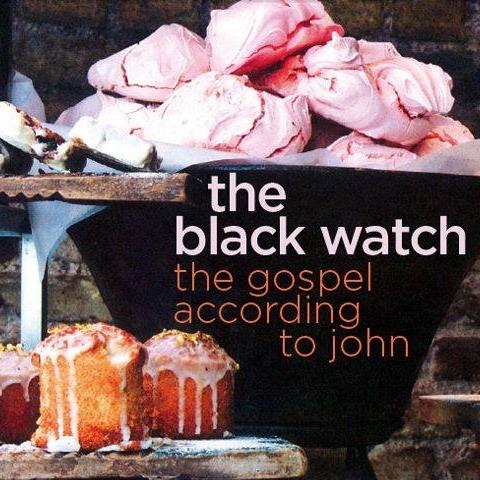When you find out your professor also has a band, curiosity will eventually compel you to sit through a set of Beatles covers at the campus Ratskeller. But professor John Andrew Fredrick is a bit different. He looks like The Band’s Robbie Robertson if he was long ago cast as a Hogwarts professor in the Harry Potter films. His band, The Black Watch, is now fifteen albums deep into a critically adored indie guitar rock career. Their latest, The Gospel According to John, is out April 21.
Haven’t heard of The Black Watch? Neither have I. Search for their albums on Amazon and you’ll need to wade through thousands of listings for actual black watches. As Michael Toland summed up for the Trouser Press, “It’s astonishing that a group as dedicated to quality and craft as California’s Black Watch could go for two decades with a cult following the size of a kitchen sponge.”
Much like Chrissie Hynde’s Pretenders, Fredrick’s Black Watch is crafted by hand with a rotating cast of musicians; they’ve delivered decades of discs that have been reviewed by the likes of Rolling Stone, USA Today and the Los Angeles Times. Unlike the Pretenders, all these years on, the Black Watch still has the buzz of being “the next great thing” — but there’s also a good chance that buzz in your ears is just feedback from their intricate “wall of guitars” sound.
I’ve taken a full spin through The Gospel According to John; the songs marry the post punk dissonance of The Fall and Wire, with the melodic guitar ambitions of the Chameleons, early Editors, and Richard Hawley’s 2012 opus Standing at the Sky’s Edge. It’s nothing new for bands of this magnitude to thrive under the surface of wider acclaim. I consider myself one of the world’s most obsessive fans of the aforementioned Chameleons and yet never knew of the existence of Jack Sobel’s Chameleon-esque Black Swan Lane until they were six albums deep into their career — and the first three of those discs actually featured singer/guitarist Mark Burgess of the Chameleons — one Black Swan Lane album served an unofficial sequel of Burgess’s even cultier spinoff The Sun and the Moon.
Like Burgess, Fredrick keeps himself busy. In addition to the new album, he has a series of books about to hit shelves, including Fucking Innocent: The Early Films of Wes Anderson (out June 13th, 2017). ”This book makes film criticism fun,” Fredrick says. ”It’s very Lester Bangs goes to the movies.’”
“‘Whence’ is about inspiration and how if you question it it might go bye-bye,” said Fredrick to POPDOSE in full literary professor mode (he currently lectures at California Lutheran University north of Los Angeles). “Keats of course came up with the ‘if poetry doesn’t come as easily as the leaves to a tree, it shouldn’t come at all,’ and yet he’s being glib, I think. Some works of art must have hard births not leaf-easy ones. Recording with Rob Campanella (The Brian Jonestown Massacre) is always a hard birth on account of he knows too much about rock, and he wants to try all these overdubs. We wanted to make a record like New Order’s Movement – stripped way, way down. And didn’t. Because Rob has too many ideas. They’re always good ones, though, damn him.”
More listening:
‘How Much is Love’ from the Black Watch Album titled Led Zeppelin Five:

Discover The Black Watch back catalog via Trouser Press. See more videos on their YouTube channel.
As the album’s release draws near, connect with Fredrick and the Black Watch on facebook, twitter and via Frederick’s official website.





Comments